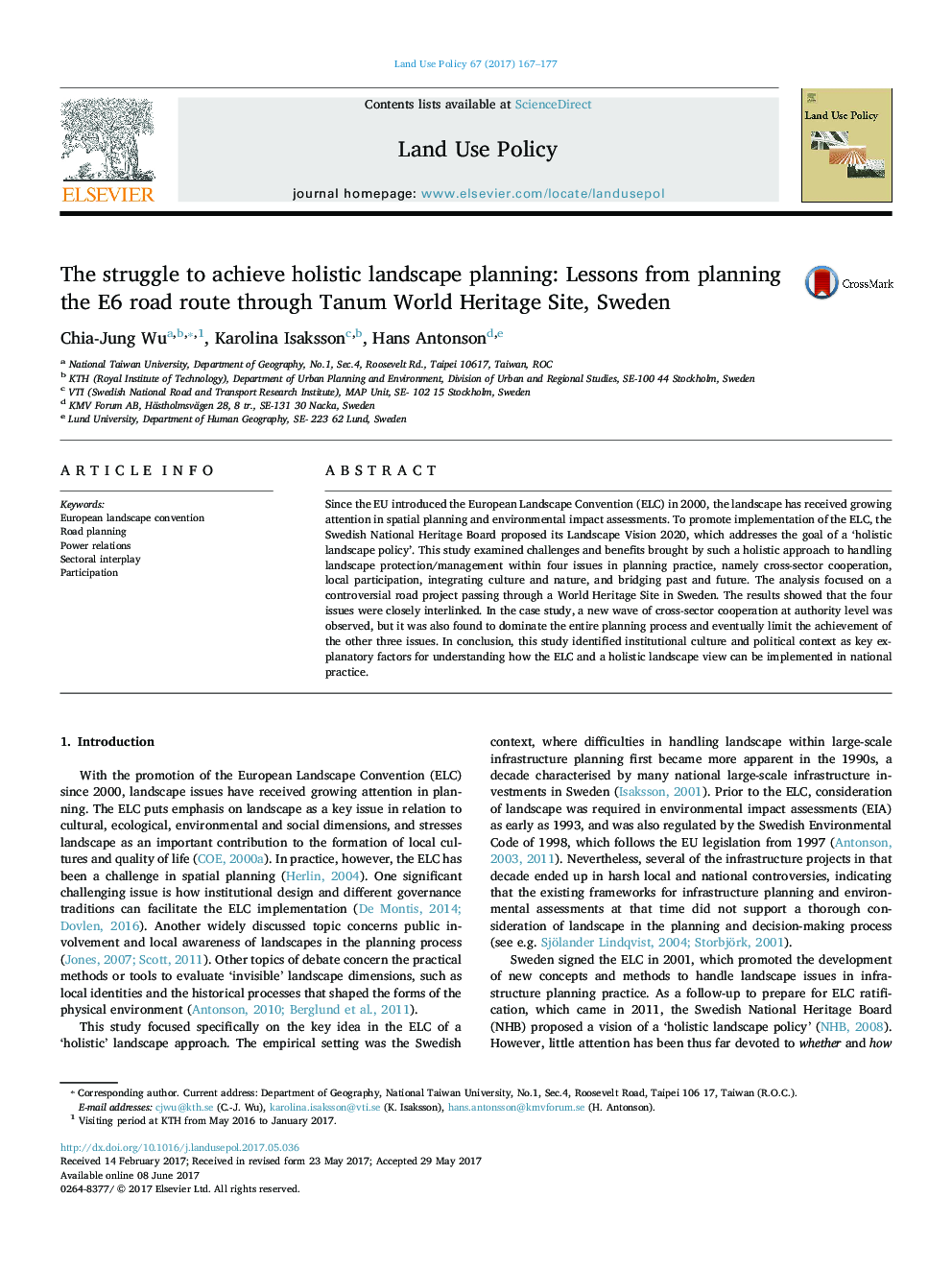| Article ID | Journal | Published Year | Pages | File Type |
|---|---|---|---|---|
| 6460647 | Land Use Policy | 2017 | 11 Pages |
Since the EU introduced the European Landscape Convention (ELC) in 2000, the landscape has received growing attention in spatial planning and environmental impact assessments. To promote implementation of the ELC, the Swedish National Heritage Board proposed its Landscape Vision 2020, which addresses the goal of a 'holistic landscape policy'. This study examined challenges and benefits brought by such a holistic approach to handling landscape protection/management within four issues in planning practice, namely cross-sector cooperation, local participation, integrating culture and nature, and bridging past and future. The analysis focused on a controversial road project passing through a World Heritage Site in Sweden. The results showed that the four issues were closely interlinked. In the case study, a new wave of cross-sector cooperation at authority level was observed, but it was also found to dominate the entire planning process and eventually limit the achievement of the other three issues. In conclusion, this study identified institutional culture and political context as key explanatory factors for understanding how the ELC and a holistic landscape view can be implemented in national practice.
